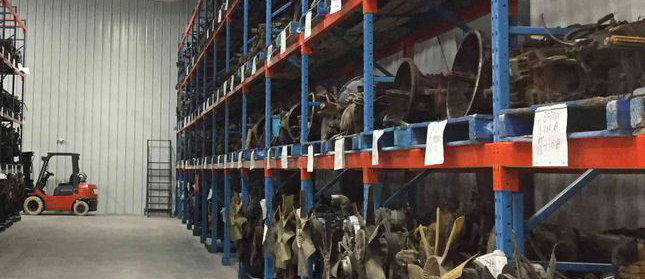
As parts and labour shortages impact supply chains, fleets are looking for new and creative and ways in how they service much-in-demand equipment.
As Truck News reports, the decisions have little to do with price of proximity.
“It’s who can get us in and get us out,” Kevin Bergman, director of fleet maintenance for Prime Inc. said during a Truckload Carriers Association (TCA) webinar on how fleets are coping with parts shortages. “Price is secondary.”
Bison Transport, reports Truck News, is also willing to spend more to keep equipment running. Mike Gomes, vice-president of maintenance, said the company is FedEx-ing parts to service providers so they can get units back on the road faster. It has also doubled its own parts inventory.
“We are taking advantage of trailer load purchase for brake shoes and drums. Understanding that the cost of raw materials is going up, we wanted to ensure we’re not short of common items like that,” Gomes said.
Fleets are having to refocus on preventive maintenance schedules in light of longer trade cycles. At Prime, a three-year cycle for new tractors has been stretched to four. The challenge, Bergman said, is lack of data on what it takes to maintain a four-year-old truck. “We’re a data-driven company and when we don’t have the data, we have to wing it week to week,” he said.
Fleets have also had to improve communications to ensure equipment gets the attention it requires. At Prime, an app sends push notifications to drivers when their equipment needs servicing. Bison, too, is leveraging technology. It has integrated its maintenance and dispatching systems so it can prioritize the equipment that is most in need of maintenance.
“Making sure they’re going after the right trailer, at the right place, at the right time,” Gomes explained. “Our goal is zero incidents over the road. We try to capture those trailers at the right time to give us the greatest chance of success.”
As to when the parts shortages will end, fleet panelists were optimistic this year will be better than last. Zbieroski said truck deliveries seem to be back on track, but it brought on a third trailer supplier last year to get the units it needed. He said some trailers increased in price by about $20,000, and “We had little no success in negotiations. ‘Either you buy it, or we’ll sell it to someone else.’”
Bergman said Prime won’t be getting many new trailers in until August. “We’d buy 4,000 if they’d let us. We are going to get maybe 800, hopefully,” he said.
Full story here. https://www.trucknews.com/equipment/fleets-employing-multiple-strategies-to-cope-with-parts-shortages/1003157148/
